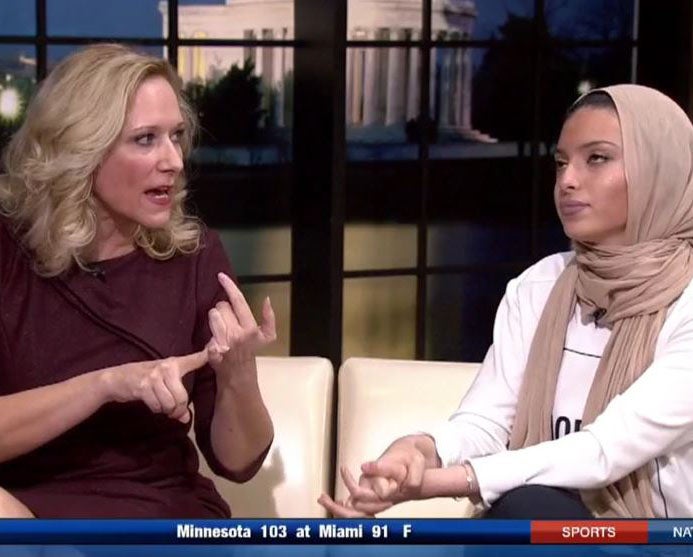I fail to see why I should celebrate a hijab-wearing Muslim woman appearing in Playboy for the first time
Do we really need to go down the route of associating with an institution based on the objectification of women in the name of challenging perceptions and celebrating female empowerment? Is this really how we reclaim our own narrative?

When news emerged online of American Muslim hijab-wearing journalist Noor Tagouri being featured in Playboy magazine, social media was predictably set alight. Unsurprisingly, it wasn’t just positive coverage – Tagouri, who favours “modesty” in her dress, was seen as an unexpected fit for the magazine most famous for featuring scantily clad models with bunny tails, to put it lightly.
While most have not been critical of the content of her interview, many have questioned Tagouri’s judgement in appearing in a publication which has built an empire on objectifying women. This is a pioneering female journalist, after all, who has been lauded as an embodiment of female empowerment. Did she let us all down?
In a time when minorities and in particular Muslims find themselves shipwrecked between the pressures of upholding western societal values and adhering to their cultural and religious obligations, many have chosen to forfeit their identities in a desperate attempt to be perceived as “normal” Transforming the perception of others and breaking away from the Islamophobic stereotypes perpetuated by prominent public figures like Donald Trump has become a central struggle for many young Muslims, especially women.
Many have defended Tagouri’s feature in Playboy, claiming that anything that increases hijabi women’s visibility and challenges opinions about their supposed oppression is a good thing. But there are limits to how much we can justify in the name of “breaking stereotypes”. Do we really need to go down the route of associating with an institution based on the objectification of women in the name of challenging perceptions and celebrating female empowerment? Are the voices of women – and in particular Muslim women – buried so deep under the cries of those who claim to speak on our behalf that our only available response is involve ourselves with Playboy, a magazine that has solely existed for the past 63 years for men to gawp at the bodies of half-naked women? Is this really how we reclaim our own narrative?
Since Tagouri’s interview was published, many have chimed in with the fact that Malcolm X and Muhammad Ali, two eminent Muslim male figures who have left behind elevated legacies, were also interviewed by the magazine. While I am critical of anyone’s association with the publication, I think context matters here. Playboy is known for sexualising women, not men, and Malcom X and Muhammad Ali were not asked to “pose” on the Playboy cover like Tagouri was.
Playboy has actively worked against women’s liberation and the feminist movement in America because they presented a counter-narrative to the one Playboy endorsed. The magazine may have rebranded (in 2015) but that does not negate the fact that it has profited to the tune of millions of dollars by presenting women as “bunnies” and setting them up for men to slather over.
While many of us may not agree with Tagouri’s decision to feature in the magazine, however, the barrage of hate and abuse she has received online is unacceptable. It’s also indicative of a wider social problem we have, wherein misogynistic abuse towards women on social media – no matter how they present themselves, or what they say or do – is rapidly becoming the norm.
Tagouri has her entire career ahead of her and, as a talented young female journalist, I’m sure her exposure to the mainstream world will not conclude at Playboy. No doubt this feature has aided her public profile, but beyond that I see very little point in the supposedly boundary-pushing feature. Forgive me if I don’t see what there is to celebrate when a hijabi woman – member of an already maligned part of society – makes the “revolutionary” choice to join forces with a sexist establishment that has debased other women by reducing them to sexual objects for generations.


Join our commenting forum
Join thought-provoking conversations, follow other Independent readers and see their replies